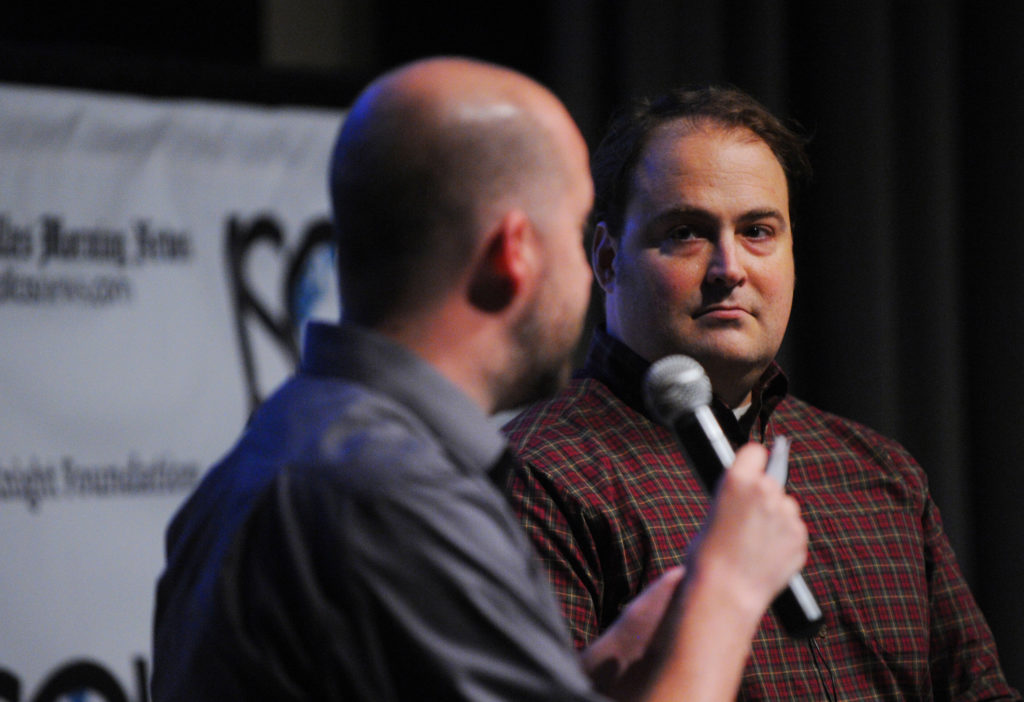May 28, 2013 | Engagement, Keynote, Social Media
NPR’s Andy Carvin warns journalists to revamp culture of social media

The warnings from NPR senior strategist Andy Carvin were heard loud and clear at the 14th International Symposium on Online Journalism. By recognizing his mistakes, Carvin was allowed to share his experiences and concerns with an auditorium filled with students, educators and journalists alike.
“We are no longer the media we are used to being, and we don’t control what people see,” Carvin said. “Today almost everyone has a device that can capture footage, and our jobs have changed.”
Carvin said he believes the conventional way of viewing journalism and the world of reporting no longer exists. “It used to be, I inform you, you listen,” Carvin said. “We can no longer treat social media as if it does not exist.”
The solution to containing false information and killing rumors early is to engage with the public, Carvin said. Looking at NPR’s mission statement for inspiration, he said our mission should be to create a more informed public. “Simply encouraging them to ‘like’ our posts or ‘retweet’ what we say is not enough,” Carvin said. “We need to recognize social media is a powerful tool and use it to slow down the news-cycle.”
By pretending that rumors don’t exist or ignoring bad information, Carvin said that will not keep the public from spreading the news. “We need to ask them where they got that information and how they came to believe they are true,” Carvin said. “We have to challenge the public to look at the stories and properly scrutinize them.”
While Carvin recognizes not every newsroom is ready to take on the process of engaging with the public and recognizing some information shared may not be factual, he said this is a new experiment that will stop underplaying the public’s role in media. “Reporting is no longer enough,” Carvin said. “We must teach them just as we learn from them.”
To make engagement possible, Carvin said he will post something he sees but chooses his words carefully. “In my Tweets, I source them and am extremely upfront about how sure I am about its validity,” Carvin said.
When discussing his role investigating the Twitter accounts of two individuals suspected of involvement with the recent Boston bombings, Carvin said he is open about the fact that he is 95 percent sure he found the right Twitter accounts for the individuals – choosing carefully to not share the information as completely verified even though he spent a lot of time investigating the accounts.
The use of social media is a beast, Carvin said, but not one that cannot be contained by people’s news instincts. “Social media has expanded but I haven’t seen a cascading effect that overwhelms everything else,” Carvin said. “As long as reporters are doing their job and others serve as aggregators, then I think we’ll be okay. But we have to get used to a world with information filters or else we will be hit with [an] information overload.”
ISOJ 2013: Andy Carvin keynote speech at the 14th International Symposium on Online Journalism from Knight Center on Vimeo.

